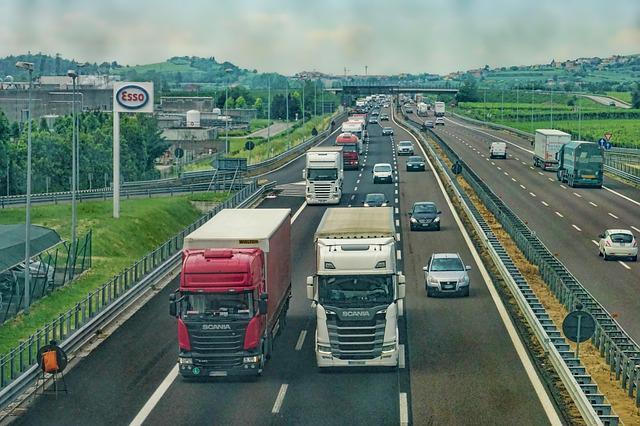In case you missed it see what’s in this section
Let's Talk
Your Total Guide To lifestyle

How are the government backed clean air zones effecting the HGV industry?
Back in 2008, the introduction of the UK’s first Low Emissions Zone (LEZ) was highly controversial. Now, Clean Air Zones (CAZs) are being implemented throughout the UK (and the world). They are also operating to much higher standards. Both changes will have a significant impact on the HGV industry.
An overview of the UK’s Clean Air Zones
At present, the UK has just seven Clean Air Zones. These are the original one in London plus Bath, Birmingham, Portsmouth, Southampton, York and Glasgow.
At present, the York and Glasgow schemes only apply to certain buses. Glasgow is scheduled to start including all vehicles from June 2023. York, currently, does not have plans to expand. The Southampton scheme is currently non-chargeable although this may well change in future.
Over the course of 2022, the following locations are scheduled to start implementing their own clean air schemes.
- Bradford
- Bristol
- Newcastle, Gateshead and North Tyneside
- Oxford
- Sheffield
- Aberdeen
- Dundee
- Edinburgh
Each scheme runs along its own designated area and sets its own conditions. The London (U)LEZ scheme has its own website. All other schemes in England are shown on the UK government’s website. Schemes in Scotland have their own website.
At present, there are no Clean Air Zones scheduled for operation in either Wales or Northern Ireland. This seems likely to change in future. When it does, the relevant information will almost certainly be put online. It may, however, be put on separate websites.
The outlook for the future
It seems highly likely that the future will see the UK government impose more stringent standards on vehicle emissions. These will be supplemented by even stricter standards at a local level. There are two main reasons why this is the case.
Firstly, air quality is a major public health issue. It can trigger or exacerbate serious health conditions. This makes it a serious drain on the NHS. Secondly, the UK has committed to becoming carbon-neutral (achieving net-zero) by 2050. Over the longer term, this will mean both transitioning vehicles to clean fuels and maximising fuel efficiency.
In the short term, however, the focus will need to be on maximising fuel efficiency. Maximising fuel efficiency minimises emissions. This means that there is a direct link between the implementation of strict Clean Air Zones and the government achieving its carbon-neutral target.
The costs of Clean Air Zones
Clean Air Zones require infrastructure to implement. Specifically, they need a way of reading number plates accurately and checking them against a database. They also need a way of entering accurate data into a database and updating it as required. What’s more, if drivers comply with the CAZ, these costs will not be recouped through payments.
On the flip side, complying with the requirements of Clean Air Zones leads to additional costs for businesses. This could be the cost of lost revenue if businesses choose to stop operating in CAZs. Alternatively, it could be the cost of updating vehicles and/or penalties for using non-compliant vehicles in CAZs.
In recognition of this, the central government has provided funding to local authorities specifically for the implementation of clean air zones. It has been left up to each local authority to use this as they wish.
The council is using £120 million to grant and fund new vehicles for people and businesses. Changing them to ones that cause less pollution and are approved to drive in the Clean Air Zone.
That’s where FleetEx comes in! As a vetted and accredited dealership by the Greater Manchester scheme, they can supply Clean Air Zone compliant trucks and HGV for you or your businesses.
COVID19 and Clean Air Zones
The whole point of Clean Air Zones is to incentivise individuals and businesses to upgrade more polluting vehicles. In the case of older vehicles, that is likely to mean replacing them entirely. For newer vehicles, it may mean retrofitting them with technology that improves their fuel efficiency.
In either case, however, the vehicles and parts need to be available for people to buy. In the case of retrofitting, labour has to be available to do the work. COVID19 has severely disrupted both manufacturing and logistics. This has resulted in a shortage of both vehicles and parts.
What’s more, it is currently impossible to tell when the issues with COVID19 will be resolved. The pandemic appears to be in its end-stage but it is still a serious issue in some parts of the world. In particular, China has an alarming number of cases. Unless the situation is remedied very soon, it seems inevitable that CAZ timetables will slip.
There are already signs of this happening. Greater Manchester was due to implement a CAZ this year. Instead, it will implement one “as soon as possible and by no later than 2026.”. Other local authorities may elect to follow suit and postpone the introduction (or expansion) of a CAZ. Alternatively, they may implement less stringent criteria.
Key points for fleet managers to note
Registering for all Clean Air Zones may create extra administration. It will, however, ensure that you are covered regardless of where you drive. This may come in useful if you get an unexpected job. It will also highlight if certain vehicles can’t be taken into certain areas or can only be taken in at additional cost.
Older vehicles and diesel vehicles are likely to come up against the highest levels of restrictions and costs. Even if CAZs operate on lighter-touch rules, they are likely to be targeted due to their environmental impact. This means that they should be the highest priority for upgrade or redeployment.
In the short term, it may be possible to work around Clean Air Zones by restricting the use of older vehicles. Using fleet-management software may help with this. Over time, however, this is likely to become less and less practical. As regulations will almost certainly be tightened.
Most CAZs will also include private vehicles including cars. This means that businesses will need to ensure that any company cars also meet the requirements for vehicle emissions. Additionally, they will need to have a process in place for employees who have opted out of company car schemes in favour of a cash allowance.
Weather in Manchester
Listings









